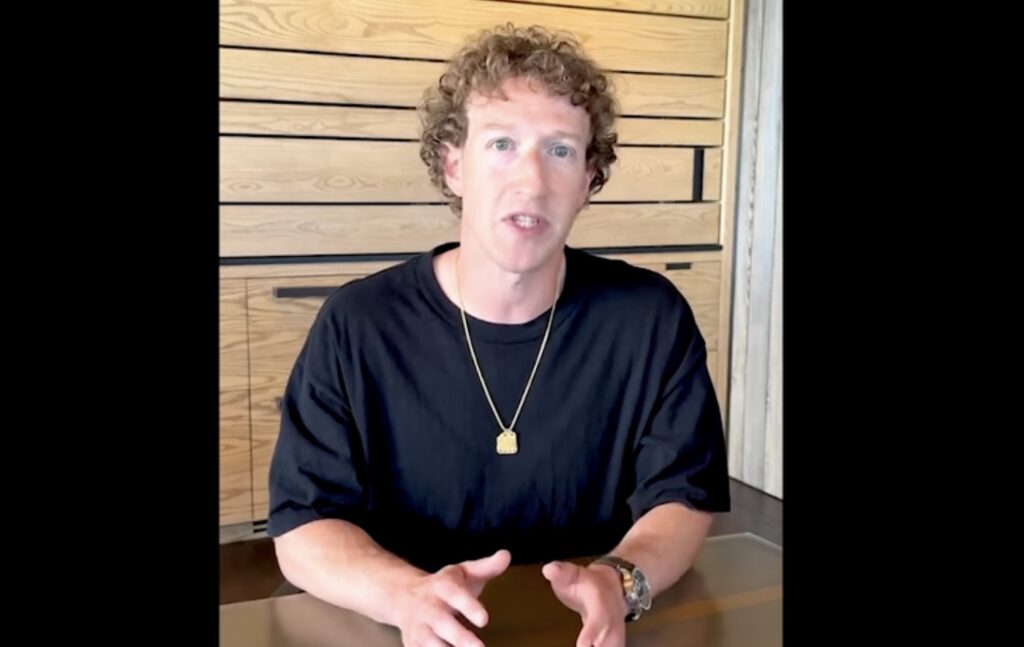The fight against misinformation, misogyny and racism will get harder following Meta CEO Mark Zuckerberg’s sweeping pushback on misinformation and hate content measures, including the axing of Meta’s fact-checking program.
With three billion users globally, this is a diabolical development for the rights and freedoms of women and girls globally, just as it is for vulnerable groups, and especially the LGBTQi community. It will also be especially problematic for the millions of kids on the platform.
The goal of the changes, Zuckerberg said in his short statement, is “to get back to our roots around free expression”. (A reminder: Zuckerberg initially founded Facebook as a network to rate the hotness of college students.)
The goal is really about appeasing incoming US president, Donald Trump, who has already claimed credit for the move, just as Zuckerberg’s rival Elon Musk described the Meta announcement as “cool”.
Ultimately, the sweeping changes come at the expense of users, who will feel the consequences. More misogyny. More racism. More targeted attacks. More disinformation campaigns. More scams. More false and dangerous health content. More cyberbullying.
As for the consequences offline? More violence, more targeting campaigns against individuals and an even wider gap in social cohesion.
Meta will end its fact-checking partnerships, while broader changes include removing restrictions on content about “topics like immigration, gender identity and gender”.
Meta has already updated its community guidelines and hateful conduct policy, including new options on the types of content that users can post. CNN shares the example that users can now refer to “women as household objects or property,” with a section of the policy that had prohibited such speech now removed. Users will also be able to say gay and trans people have “mental illness”.
Meta’s new Hateful Conduct policy also removes the previous line that saw the document open with the declaration that hateful speech may “promote offline violence” – a comment that had been present since 2019, according to Wired.
Three billion people globally use Meta’s platforms, which include Facebook, Instagram and Threads. In Australia, more than 9 million separate pieces of content on Facebook and more than half a million posts on Instagram (including reshares) have displayed warnings from Meta’s fact-checking partners, with research showing such warnings are effective in slowing the spread of misinformation.
Meta’s Trust & Safety team will relocate to Texas under the plan, a state that has a six-week abortion ban and where women have since died from preventable deaths as a result. They’re moving from California to Texas to “remove the concern that biased employees are overly censoring content,” Zuckerberg said on Threads.
Fighting disinformation targetting women is essential for women’s safety, women’s health and for retaining and improving on the progress made on women’s rights.
Indeed, disinformation didn’t start with social media. But the oldest form of disinformation involves narratives targeting women, as Chris Kremidas-Courtney outlines.
These disinformation narratives have been occurring throughout history, with women being subjected to extensive false narratives aiming to undermine their worth and to justify oppression and discrimination.
But the spread of this disinformation occurs much faster and into much wilder theories of speculation through social media — even with some of the limited guardrails in place to trying and protect against it.
Women have been depicted as too weak to be trusted with political power, too emotional for leadership and decision making and too maternal to build businesses. These levels of disinformation ratchets up significantly for First Nations women and women of colour.
Women who do get into positions of power, especially in politics and on the global stage, face attacks and disinformation campaigns that include biased or false information or demeaning stereotypes about women. Australian politics has seen no shortage of such attacks, including more recently against the female dominated crossbench.
Currently, Meta supports an independent, third-party, fact checking program, initially launched in 2016 following concerns about the integrity of information on the platform around the election of Trump to his first term in office. Fact checking partners include the Australian Associated Press, Reuters Fact Check and PolitiFact. They examine the validity of problematic content, with warning labels issues to content believed to be misleading or inaccurate.
While Zuckerberg claims the fact-checking has censored and stifled free speech, the head of the International Fact-Checking Network has since stated that content has never been censored or removed by the fact checking programs. Rather, it’s added information and context to controversial claims.
Zuckerberg’s short statement declaring they are getting “rid” of face-checkers also stated that legacy media had been writing “nonstop” about how misinformation was a threat to democracy (something that others, including non-legacy media like Women’s Agenda, had also been stating).
“We tried in good faith to address those concerns without becoming the arbiters of trust,” Zuckerberg said. “But the fact checkers have just been too politically biased and have destroyed more trust than they have created, especially in the US.”
Zuckerberg did not present any evidence of this bias, despite having eight years of data available.
Back in 2021, Zuckerberg described the fact checking program as “industry leading” in a written submission to members of Congress.
As for what will replace the fact-checking program, Zuckerberg said the platforms will deploy a “community notes” model meaning it will be based on users, rather than leaving it to the professionals – a model that is currently used by X and which, for anyone who has been on X recently, is not working particularly well, if at all.
As for what will be provided to support users who are attacked or harmed by the new opportunities for hateful content? Nothing.


